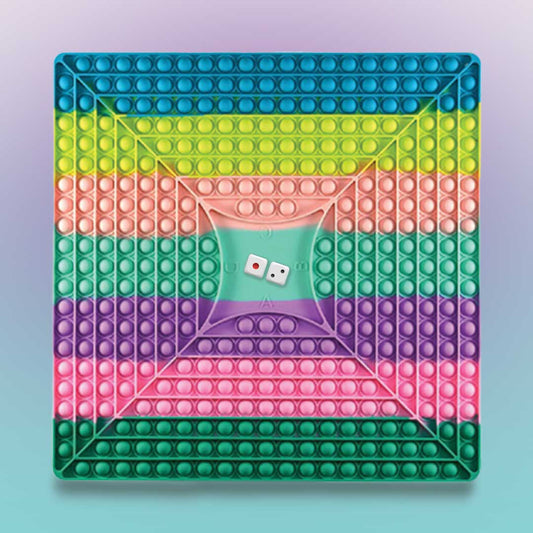The Shocking Truth About Pottery Barn Teen: Secrets Revealed
Introduction
Pottery Barn Teen, a subsidiary of the renowned home furnishings brand Pottery Barn, has been a significant player in the teen home decor and furniture market since its inception in 2003. Known for its stylish, eco-conscious, and high-quality products, the brand has built a reputation for excellence. However, beneath its polished exterior lies a series of controversies, consumer complaints, and business practices that have raised eyebrows. This report delves into the untold truths about Pottery Barn Teen, revealing the secrets that the brand might prefer to keep under wraps.
Brand Overview and Market Positioning
Pottery Barn Teen was introduced to offer home furnishings and solutions that reflect who teens are and how they live. Available online and in stores globally, Pottery Barn Teen emphasizes quality design with a focus on eco-friendly and sustainable materials that have a low impact on the environment. The brand is a member of Williams-Sonoma, Inc. and participates in The Key Rewards, a loyalty program offering exclusive benefits across the family of brands (Yahoo Finance).
Despite its stylish offerings, Pottery Barn Teen has faced numerous complaints regarding its customer service and order fulfillment. On Sitejabber, the brand has a dismal rating of 1.2 stars from 176 reviews, indicating that most customers are generally dissatisfied with their purchases. Common complaints include delayed shipments, backordered items without notification, and poor communication from customer service representatives.
Product Offerings and Innovations
Pottery Barn Teen offers a wide range of products, including bedroom furniture, office items, media storage, rugs, bathroom items, window coverings, lighting, and decorative items. They carry collections from Beadboard, Hampton, Oxford, Locker, Lilac, Chic, Parker, and many more (Sitejabber). In 2024, Pottery Barn Teen launched its largest dorm collection to date, offering new digital tools, including the “Build my Bed” 3D visualizer and “Ultimate Dorm Wishlist” feature, both now available for use on the Pottery Barn Teen mobile app and website. The expanded assortment includes new styles of Twin XL bedding, No Nails headboards, décor, bath, and rolling drawer carts along with area rugs, decorative pillows, and lamps. Pottery Barn Teen has also expanded its popular collaboration with the fashion brand LoveShackFancy to offer trend-forward dorm essentials (Furniture Today).
Customer Service Issues
Despite its product innovations, Pottery Barn Teen has been criticized for its customer service. Many customers have reported issues with delayed shipments, backordered items without notification, and poor communication from customer service representatives. One customer recounted a frustrating experience where a Papasan lounge chair was delivered with a defective cushion after a 30-day delay, leading to a lengthy and cumbersome return process (Sitejabber).
Product Quality Concerns
Pottery Barn Teen has also faced criticism for the quality of its products. Several customers have reported receiving defective or low-quality items that did not match the descriptions or images on the website. One customer described their experience with a set of linen curtains that were of such poor quality that they resembled "pieces of scratchy tissue paper." Despite being on clearance, the curtains were still considered overpriced, leading the customer to vow never to purchase from Pottery Barn again (Trustpilot).
Deceptive Advertising Practices
Pottery Barn Teen has been embroiled in controversies regarding deceptive advertising practices. The Federal Trade Commission (FTC) alleged that Williams-Sonoma, the parent company of Pottery Barn Teen, made misleading claims that certain products were all or virtually all made in the United States when they were not. This included Pottery Barn Teen-branded upholstered furniture products, which were found to be wholly imported or contained significant imported materials or components (FTC).
In 2018, the FTC received reports that Williams-Sonoma claimed in ads and promotional materials for Pottery Barn Teen organic mattress pads that those products were “Crafted in America from local and imported materials.” However, consumers discovered that the pads were made in China. Williams-Sonoma quickly corrected the country-of-origin information for the mattress pads and agreed to comply with the FTC’s requirement to undertake a larger review of its country-of-origin verification process (FTC).
Security Concerns
Pottery Barn Teen has also faced criticism for its online security practices. A customer reported that their credit card information was hacked after making a purchase on the Pottery Barn Teen website, resulting in unauthorized charges totaling $11,000. This incident highlights potential vulnerabilities in the brand's e-commerce platform and raises concerns about the safety of customers' personal and financial information (Trustpilot).
Brand Perception and Consumer Trust
The controversies surrounding Pottery Barn Teen have significantly impacted its brand perception and consumer trust. While the brand continues to innovate and expand its product offerings, it must address these underlying issues to ensure a positive and trustworthy shopping experience for its customers. By improving its customer service, enhancing product quality, and ensuring transparency in its advertising and security practices, Pottery Barn Teen can work towards rebuilding its reputation and regaining consumer trust.
Conclusion
Pottery Barn Teen is a brand that has achieved significant success in the teen home furnishings market, thanks to its stylish designs, commitment to sustainability, and strategic collaborations. However, the brand's reputation is marred by controversies, deceptive advertising practices, and numerous customer complaints. The poor customer service experiences, the misleading "Made in the USA" claims, and the security concerns highlight the challenges Pottery Barn Teen faces in maintaining consumer trust and satisfaction.
To move forward, Pottery Barn Teen must address these issues head-on. By focusing on improving customer service, ensuring product quality, and maintaining transparency in its advertising and security practices, the brand can work towards rebuilding its reputation and regaining consumer trust. As the brand continues to innovate and expand its product offerings, it must prioritize these areas to ensure a positive and trustworthy shopping experience for its customers.





